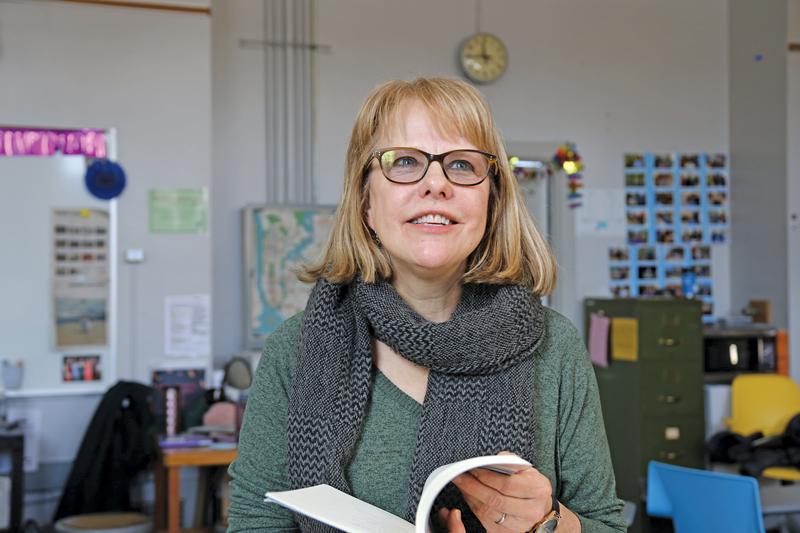Ellen Stone taught at Community High School for many years before her recent retirement. Now she has published a first book of poetry, What Is in the Blood. It deals with some tough questions of family, mental illness, abandonment, and duty–big subjects that are given poignancy by the experience of the poet and passionate clarity by her abilities. I suspect that the poems have so much power because the poet has allowed them to grow over a long period of time.
Most of Stone’s book is centered on her mother’s mental illness. What Is in the Blood begins, “She doesn’t remember how she/lost it. We were young and needed/her.” We are immediately in the story, without context or explanation, just as young children might be in such a situation. As treatment begins, they are told that “our mother would not be coming home with us.” They learn to cook and clean and take care of themselves. When they go to church in their rural community, they feel as if they’ve become a spectacle:
Red-winged blackbirds call from the black ravine.
The bell will ring soon, pealing over the hill.
All those people who say they are Christians.
Watch us walk in. Will they wonder where she is?
Our mother, home in bed, still wintering. We sit
in Granny’s pew, flowers spread over our laps.
The pressure of her illness leads to divorce: “Mom in a one room flat/in Boston, and the rest of us/back home on the farm/still acting like hired help.”
As the poems progress, as the mother and the poet age, Stone allows herself a slightly different relationship with language. The sentences get less stark, the images a bit more complicated. In “Today is the Sabbath of medicine,” the mother is living in Ann Arbor, and Stone describes the rituals necessary to keep her balanced. It ends with a view from her “subsidized apartment,” overlaid by a lifetime of worry and care:
Norway maple flowers junking asphalt
with hard green buds, new lilac blooming
somehow smelling like bereavement
or grace, I cannot tell the difference.
Nothing is easy in the story told here, not for the mother nor for the daughter-poet who cares for her. But there are moments that seem to change things. In the very last poem, as a “pink full moon” rises over “the laundromat, the muffler shop/and storage sheds on I 94,”
“It looks artificial!” Mother crows,
but she is happy all of a sudden.
I wonder how the moon can do that.
We round a corner, on a drive home.
And the pink full moon comes at us–
dip-swoop of bird flight, oak song
the way branches finger the sky–
handing us something for keeps.
Ellen Stone reads at Literati Bookstore at 7 p.m. on March 5.

Oh cool! Ellen Stone was my son’s teacher at Community for two years. Until I ran across this article, I did not know about her new career as a poet. Go Ellen!!!